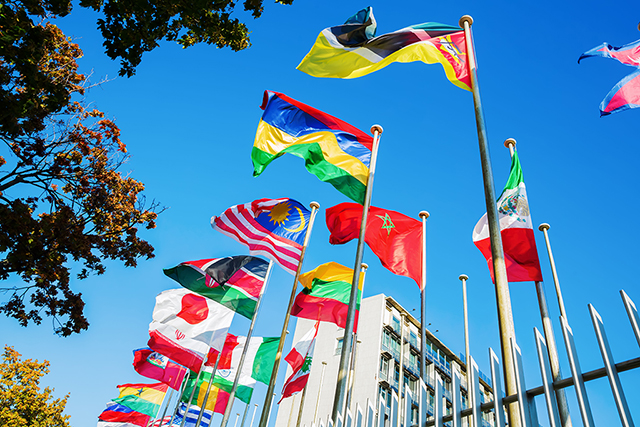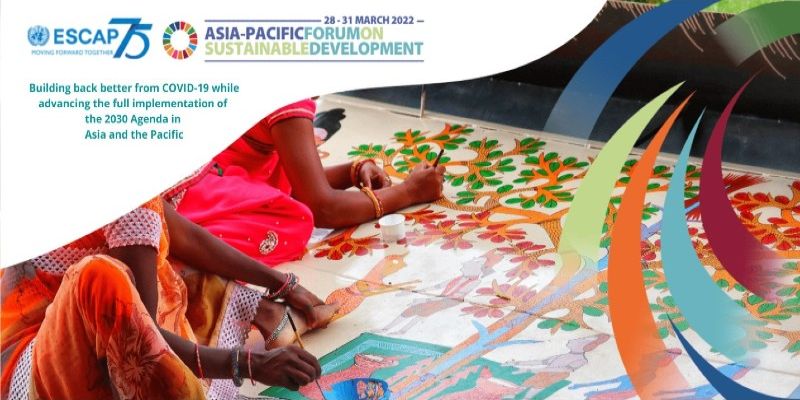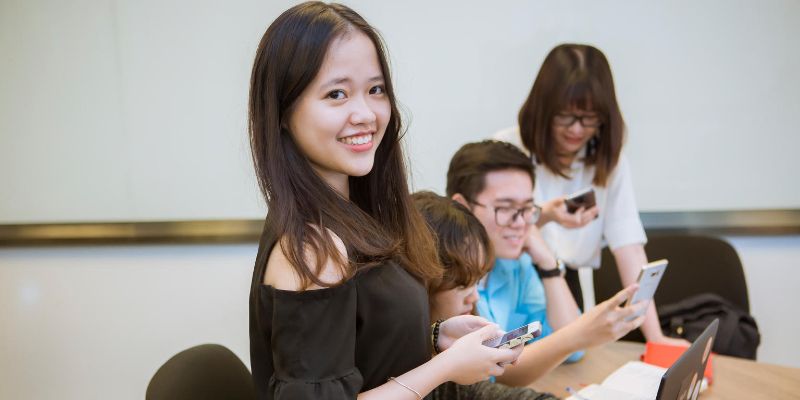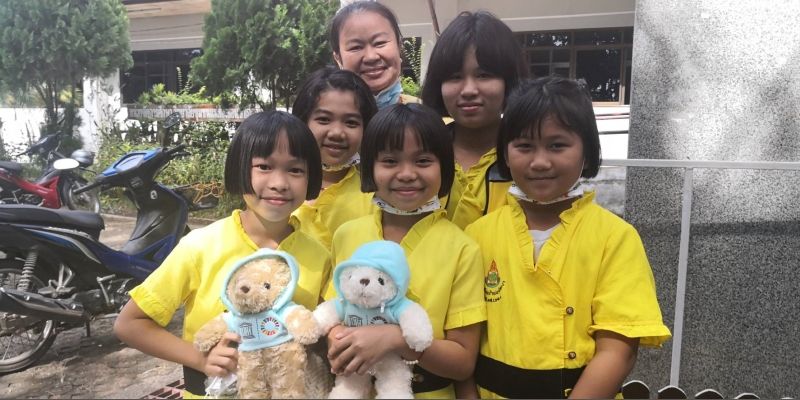Back to the Future: UNESCO Bangkok reflects on its 2021 achievements and new initiatives in Thailand
Throughout 2021, the various units of the UNESCO Bangkok Office – UNESCO Asia and Pacific Regional Bureau for Education; Culture; Natural Sciences; Social Sciences; and Information and Communication – stewarded an array of programmes and events, both independently and in regional collaboration with others, which made for a diverse body of achievement during the COVID‑19 pandemic.
Selected notable themes – categorized here by programme concentration – comprise the following:
UNESCO Asia and Pacific Regional Bureau for Education
1. Promoting literacy and good reading habits for out-of-school and marginalized children through mobile literacy smartphone application
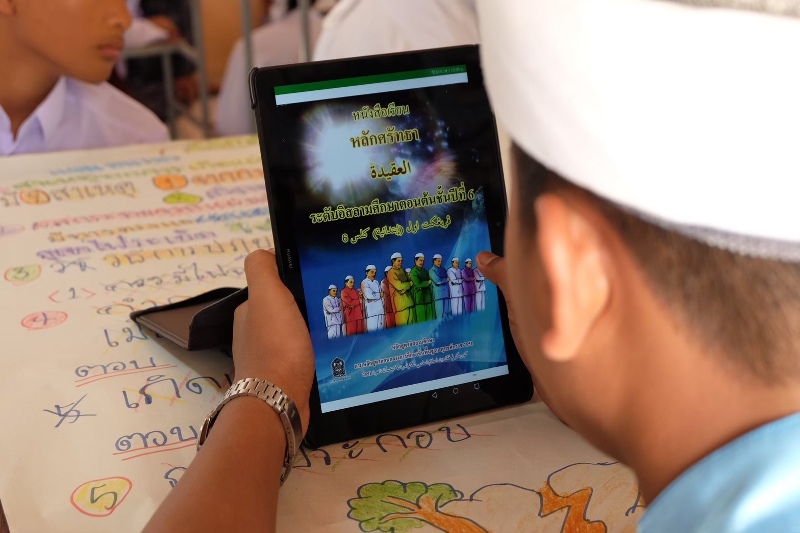
LearnBig is an open-access digital library and smartphone application developed by UNESCO. The application makes available over 1,500 books and learning materials to teachers and students, with the aim toward promoting literacy and good reading habits among out-of-school and marginalized children throughout Thailand. The free LearnBig platform, which is supported by the True Corporation (TRUE) and the Thailand Ministry of Education, provides books in Thai, Myanmar and Malay languages, all of which have been contributed to the app by over 20 organizations with the interest of enhancing basic literacy and numeracy skills of disadvantaged children, most of whom reside along the Thailand-Myanmar border and among the southern border provinces of the country. All books are categorized by level of difficulty so that teachers and parents may select the appropriate reading-level content for young learners.
As of the close of 2021, the LearnBig platform has more than 83,000 users and has been viewed nearly 300,000 times. The free LearnBig smartphone application itself has been downloaded more than 33,000 times (App Store and Play Store). During the COVID-19 pandemic, UNESCO has further enriched the LearnBig platform with the addition of more than 100 individual COVID-19 Information, education and communications materials in English, Malay, Myanmar, and Thai languages, including advocacy materials to increase awareness in southern border provinces of the benefits of vaccination.
Since 2015, the project has supported over 6,200 migrant and marginalized Thai children and teachers at 89 migrant learning centers (MLCs); and Thai public schools and Madrasah schools (Pondok) in 9 provinces – Kanchanaburi, Narathiwat, Pattani, Ranong, Satun, Samut Sakhon, Song Khla, Tak, and Yala – thereby assisting a host of diverse learners in accessing quality learning materials and books on the LearnBig platform.
2. Promoting literacy and good reading habits of out-of-school and marginalized children in Thailand through mobile reading application and conditional cash transfers
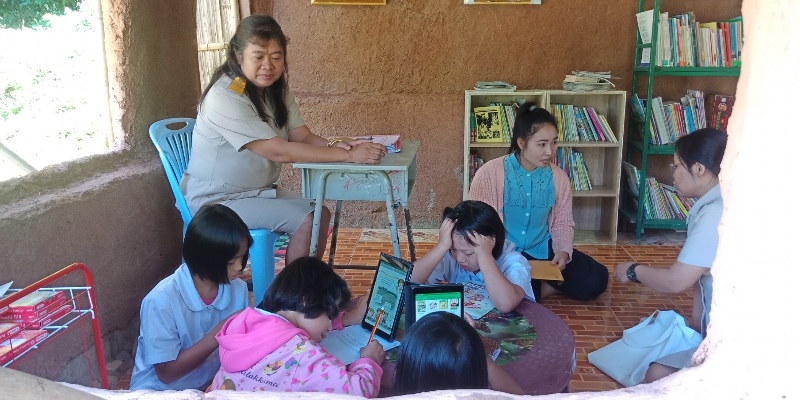
In 2021, in the pilot ‘Learning Coin’ project, UNESCO promoted the literacy and good reading habits of 454 out-of-school and marginalized children in four selected provinces, namely Bangkok, Mae Hong Son, Nakhon Nayok and Yala, through the LearnBig mobile reading application, featuring conditional cash transfers of up to THB 800 monthly per reader. Addressed, in part, to allaying the frequency with which marginalized children drop out of school to financially support their families, the project aims to reposition a child’s learning from an apparently passive enterprise to an active, productive, and even materially beneficial endeavor contributing to the entire family’s well-being and sustainment.
The pilot ‘Learning Coin’ project, which was successfully carried out in collaboration with the Equitable Education Fund (EEF), the Thailand Ministry of Education and Chulalongkorn University, tracked participating children’s reading capacity via the app and analyzed how much time children spent reading on a day-to-day basis, as well as how many questions they answered, and how consistently they were able to maintain good reading habits.
Participating learners were scored according to their efforts, which translated concretely into cash incentives provided by the programme of up to THB 800 monthly, paid out to a learner’s parents, thus helping to prevent children from dropping out of school in order to take up work in support of their families.
Emerging data from the programme suggests that the more frequently scholarships are paid out (monthly vs bi-weekly), the more motivated children are to keep up their reading. 15 learners with the highest scholarships (THB 800 monthly) spent between 21 and 95 hours monthly reading books on the platform.
3. Supporting unemployed youth from the impact of COVID-19 by equipping them with digital skills
In a partnership between UNESCO, the Thai government and the private sector, and in direct response to the negative economic impacts of the COVID-19 pandemic, UNESCO equipped more than 100,000 unemployed Thai youths in 2021 with critically important digital skills.
Under an ‘Accelerating Thailand’ initiative utilizing online and offline platforms, UNESCO and its partners delivered digital skills courses for youth, among them Microsoft Office, Power BI (for data visualization), and Microsoft Power App (for mobile application development).
The project leveraged UNESCO’s LLL-OLC platform, which features a dedicated section on digital skills for employment, and which has reached over 98,000 views in 2021. As part of this effort, over 7,000 youths were trained as non-formal, ‘master trainer’ education teachers by the Office of Non-Formal and Informal Education (ONIE) of the Thailand Ministry of Education. Following their training, master trainers in turn provided training to more than 100,000 youth, 66 per cent of them women, which resulted in greater employment opportunities and greater self-confidence of the programme’s participants in their work.
The second phase of the project is slated to be implemented from January 2022 to February 2023.
4. Advancing innovation and digital transformation in Thailand
On the occasion of the ‘Girls in ICT Day in Thailand 2021’ initiative, in collaboration with the UN International Telecommunication Union (ITU), the national Ministry of Digital Economy and Society, the National Broadcasting and Telecommunications Commission and Microsoft Thailand, UNESCO provided a series of online training in Artificial Intelligence (AI), the ethical and human rights principles implied in its development, and gender issues in AI and STEM to over 150 girls in the country.
In addition, UNESCO engaged 10 schools in Thailand in a series of Artificial Intelligence (AI) coding trainings for teachers and students, with funding provided by the Chinese IT company CODEMAO, and in cooperation with Thailand’s National Commission for UNESCO.
In addition, UNESCO supported Thailand in gaining a deeper understanding of its digital environment and digital transformation through the national assessment of Internet Universality. Leveraging UNESCO’s Internet Universality Indicators, results of the assessment were shared with Thailand’s Office of the National Digital Economy and Society Commission.
5. Together for Peace Silent Manga Exhibition and UNESCO Associated Schools in Thailand
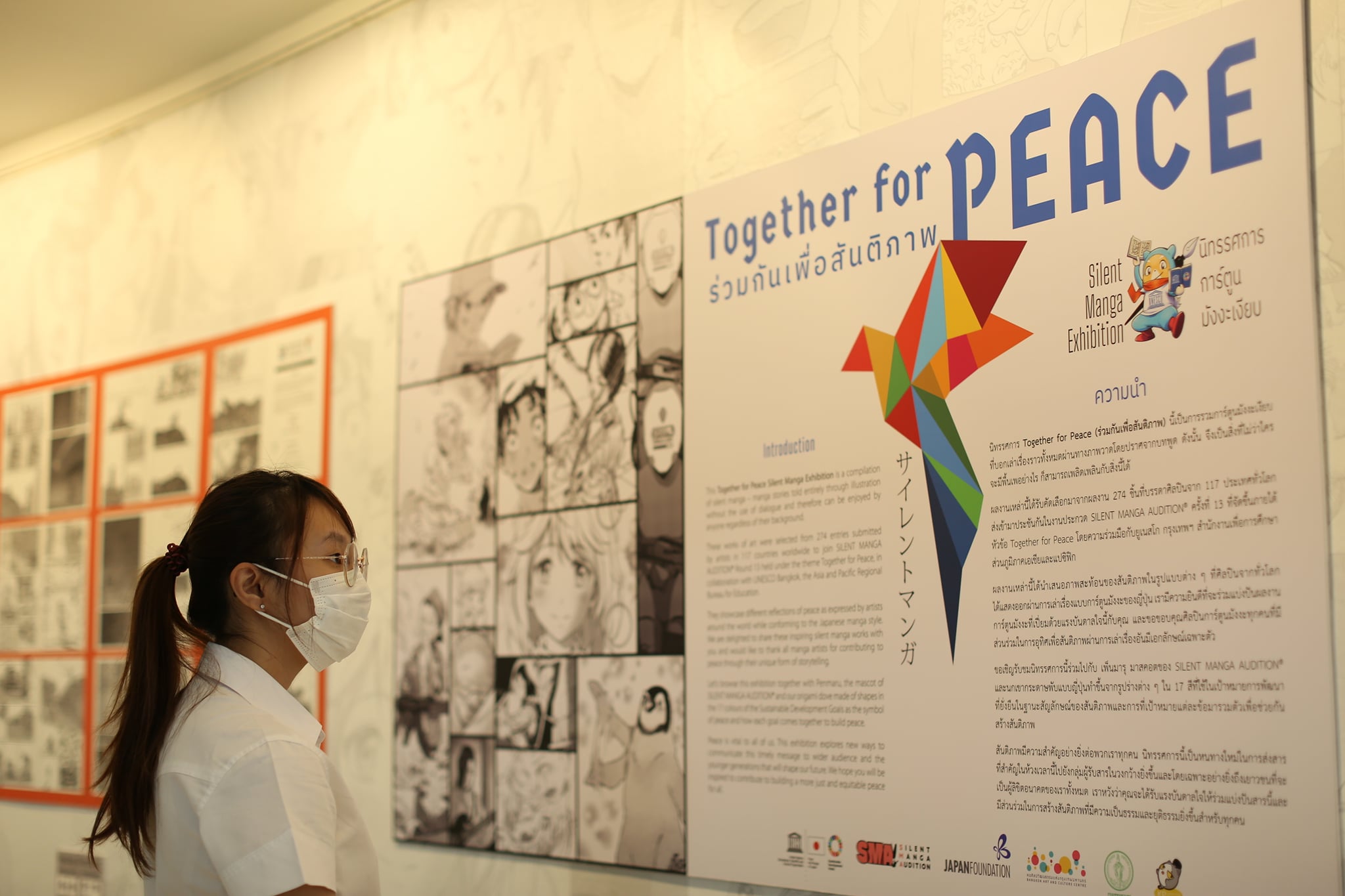
Showcasing different reflections on the meaning of peace by artists from around the world, UNESCO promoted ‘positive peace’ in Thailand through a series of exhibitions (both online and in-person), accompanying online events, and related publications on the theme ‘Together for Peace Silent Manga’.
The culminating exhibition featured graphic works that covered a wide range of peace-related topics, such as out-of-school children, lifelong learning, anti-bullying, conflict, youth, learning to live together, and the plight of refugees and shared cultural histories, and was organized at the Bangkok Art and Culture Centre with support by the Japan Foundation Thailand between November and December 2021, attracting a large number of young people and generous local and regional media attention. The exhibition also featured live silent manga drawing demonstrations and a related film screening.
In addition, a bilingual Thai-English booklet published by UNESCO, Together for Peace Silent Manga Teacher’s Companion is being disseminated throughout the 180-member UNESCO Associated Schools Project Network (ASPnet) in Thailand, in cooperation with the Thai National Commission for UNESCO. The Teacher’s Companion supports teachers in using the online Together for Peace Silent Manga Catalogue for enhanced teaching-learning purposes.
SDG 4: Education 2030 Coordination and Monitoring in Asia-Pacific
6. Provision of Technical Support to Government of Thailand in monitoring of SDG 16.10.2
Within the framework of SDG 16.10.2 monitoring in Thailand, UNESCO provided technical support to the Thailand Office of the Official Information Commission to collect and submit data to the 2021 Survey on Public Access to Information (SDG Indicator 16.10.2).
Communication and Information
7. Addressing Violence against Women in and through the Media
Addressing the persistence of violence against women in and through the media in Asia-Pacific, UNESCO, in collaboration with the National Broadcasting and Telecommunications Commission, the National Press Council of Thailand, the Ministry of Social Development and Human Security and UN Women launched The Big Conversation: Handbook to Address Violence against Women in and through the Media, with corresponding Thai translation, on 25 November 2021. Following the launch, UNESCO engaged Thai regulators, media, journalism schools, and civil society on the topic of developing a code of ethics, along with setting out practical guidelines for preventing violence against women in and through the media throughout the region.
Culture
8. Strengthening Thailand’s creative and film sectors
In 2021, UNESCO supported Thailand’s Ministry of Culture and Creative Economy Agency (CEA) in strengthening Thailand’s creative sector. As part of its support, UNESCO conducted a situation analysis of the creative sector and film sector in consultation with government and civil society stakeholders, and discussed its findings, which led to the formulation of a set of recommendations and a roadmap toward strengthening the creative sector. Following the assessment, a pilot project was carried out in Pattaya, using the culture-based approach, to support Pattaya’s vision to become a UNESCO Creative Cities Network (UCCN) member in the film domain.
9. Reviving Thai traditional building craftsmanship for the conservation of heritage sites
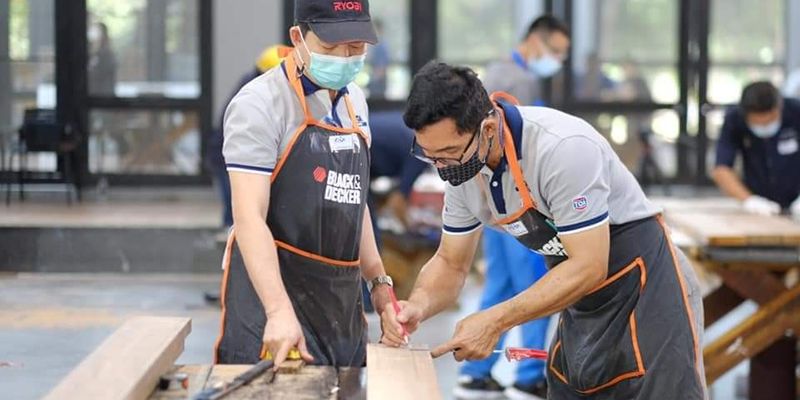
With support from SCG Foundation, a series of activities were undertaken by UNESCO in 2021 to build personal and institutional capacities of thousands of heritage conservation professionals across the country, and to raise awareness on heritage conservation in Thailand.
Activities included the (1) publication of illustrative manuals for conservation of wooden architecture in Thailand; (2) production of documentary videos on conservation processes and techniques; (3) organization of the first national conservation carpentry contest; as well as (4) facilitation of multilateral collaboration between Fine Arts Department (Ministry of Culture), Department of Skill Development (Ministry of Labour) and universities to legalize professional standards and enhance capacity-building for heritage craftspeople. This initiative led ultimately to the launch of on-the-job courses for conservation craftspeople, architects, engineers, and foremen, using UNESCO-designed training curricula.
10. Strengthening the management of Chiang Mai World Heritage Tentative List site
UNESCO supported heritage stakeholders in the management of the Monuments, Sites and Cultural Landscape of Chiang Mai, Capital of Lanna, a UNESCO World Heritage Tentative List site. UNESCO supported stakeholders to apply the newly developed competence-based institutional assessment process, which combines guidelines and tools from the ‘UNESCO Competence Framework for Cultural Heritage Conservation’ and the ‘Enhancing Our Heritage Toolkit’, the results of which subsequently fed into the development of an appropriate Competence Framework for Cultural Heritage Management as part of a larger nomination strategy.
11. Integrating living heritage in formal and non-formal education
In 2021, UNESCO worked with schools in the northern Chiang Mai Municipality, training teachers and conducting a pilot project on bringing living heritage into the classroom. An animation series, ‘Teaching and Learning with Intangible Cultural Heritage’,has been translated into Thai and was put to constructive use by teachers and education stakeholders. As a result of the pilot project, the Chiang Mai Public Administration Organization is committed to continuing its work with other such schools under its management.
Additionally, UNESCO supported the Office of Non-formal and Informal Education under the Thailand Ministry of Education to introduce ‘living heritage’ into non-formal education through Community Learning Centers (CLCs). Facilitators from CLCs were trained in concepts and principles of safeguarding living heritage, and its contribution to sustainable development, and have started developing and testing new lessons that apply this approach in local CLCs.
12. Khon+Future Photographic Exhibition
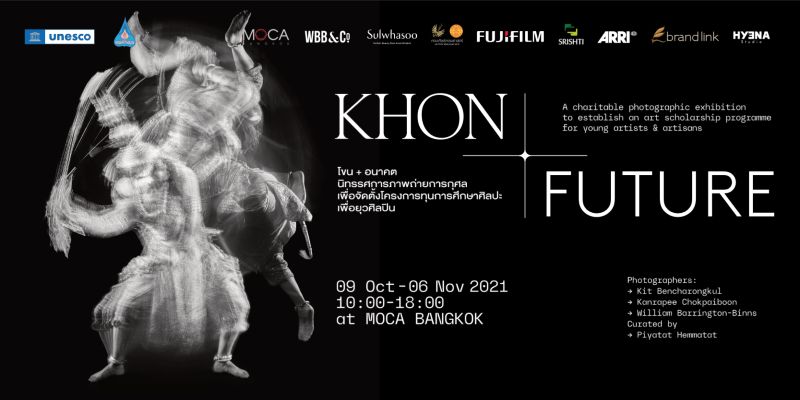
In collaboration with the SUPPORT Foundation of Her Majesty Queen Sirikit; the Museum of Contemporary Art (MOCA), Bangkok; and the Korean cosmetics and skincare company Sulwhasoo, UNESCO launched a fine art photographic exhibition of Royal Khon performers in November 2021. The exhibition, which originated at MOCA Bangkok and has since moved to the Mae Fah Luang Art and Cultural Park, in Chiang Rai province, features works by fine art photographers Kit Bencharongkul, William Barrington-Binns, and Kanrapee Chokpaiboon. In addition to raising awareness about the ancient Khon mask cultural tradition, the exhibition is serving as a charitable fundraiser to assist young and underprivileged artists and artisans in continuing their education and launching their careers through modality of the SUPPORT Foundation.
13. Living Heritage Related to Sustainable Management of Coastal and Marine Environments in the Andaman Sea
In collaboration with Social Research Institute of Chulalongkorn University, UNESCO undertook a pilot, community-based inventorying and safeguarding of living heritage related to the sustainable management of coastal and marine environments in the Andaman Sea. Activities supported the planning of the culturally protected area and supported continued discussion pertaining to policy recommendations on sustaining indigenous cultures to the Thai government.
UNESCO engaged in training members of Urak Lawoi communities in Lanta Island, Phi Phi Island and Jum Island on inventorying methodologies, and identified and inventoried (1) Prahu building in the context of Phi Phi Island, and (2) Urak Lawoi place-naming tradition in Larger Lanta Island and outlying islands.
Inventoried data from the initiative is currently stored in the community-led online database of cultural heritage by HRH Princess Maha Chakri Sirinthorn Anthropology Centre, where local communities will have permanent access to update and revise information whenever they wish.
*** Only a sampling of UNESCO Bangkok’s many projects, programmes and initiatives could be included here; for more information and a broader view, including our work in areas of Health; Monitoring and Statistics; Social & Human Sciences and our special, ongoing ‘Together for Peace’ (T4P) inititative, explore our comprehensive website! ***
To learn more about UNESCO Bangkok’s many current and recent initiatives: https://bangkok.unesco.org/
For UNESCO Bangkok’s Quarterly Monitoring Report chronicling recent achievements:
https://bangkok.unesco.org/content/public-information-and-outreach-pio-monitoring-report
Main photo credit: ©UNESCO/I.Miyazawa
